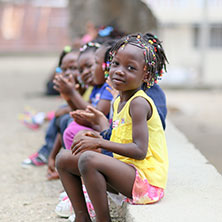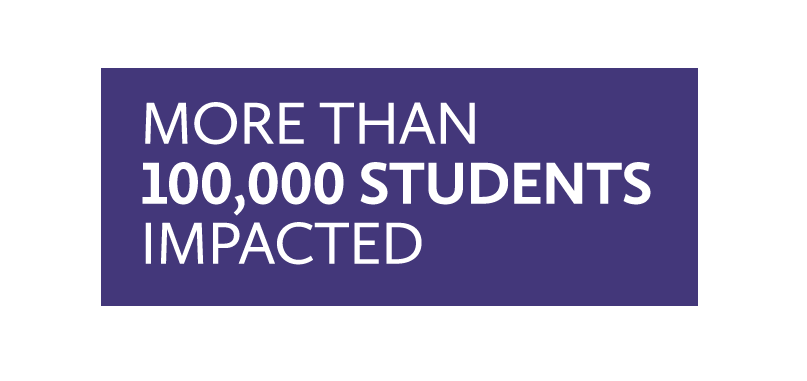We use cookies on this site to enhance your experience.
By selecting “Accept” and continuing to use this website, you consent to the use of cookies.


Every year, Laurier’s Education and Leadership Institute (ELI) brings hundreds of Haitian and Canadian teachers together in Haiti for a week-long workshop to build teaching skills and global professional connections. One of Laurier’s key internationalization initiatives, ELI’s vision is founded on a Haitian Creole expression,"Piti piti, ti pay pay, zwazo fe nich – little by little, straw by straw, the bird builds its nest."
If one teacher can make a difference in the life of one child, think of the impact of hundreds of teachers on thousands of children. Founded in 2016 with the ambitious goal to engage 1,000 Haitian teachers to impact the learning outcomes of an estimated 100,000 students by 2020, the ELI has surpassed this goal significantly, seeing 2,400 teacher participants so far. ELI is now expanding into Nepal and Egypt.

After coming together at the ELI, teachers return to their home communities with increased capacity to prepare the next generation for engaged, active lives and careers – while also developing their own confidence and skills. Small, daily moments of learning and relating can have a big impact through the students whose lives they touch.
Samuel Charles is one such individual. In 2013, in his final year of high school in Haiti, Samy participated in the first ESL class by Laurier in Cap-Haïtien. Two years later, ELI Lead Steve Sider, associate professor in the Faculty of Education at Laurier, told Samy about the ELI project and the vision behind it. When the yearly ELI workshop started in 2016, Samy took a leadership role in coordinating the ELI English afternoon program and was active in the summer camp. He continued this work at the ELI for four years.
ELI supporters also gave Samy a scholarship to attend Université Quisqueya, a top university in Haiti. Today, Samy is studying for the US medical board examinations. He plans to use his skills and education in the short term to help his family, but in the longer term Samy plans to create anti-drug/alcohol programs for local teens in his home community, as well as advocate for more educational programming, with the mission to keep more youth in school.
“I am sure that I am just one example of the thousands of lives that ELI has had an impact on. I think the impact is greater than we think, and there’ll be a lot of unknown amazing stories,” says Samy. “A little more than one year from now I’ll be a graduate doctor. One of my biggest childhood goals will be accomplished because of all the great support I’ve received and all the amazing people walking alongside me.”
“The backbone of the program is reciprocity,” he continues. “And for me that’s what makes ELI different. A week with ELI for anyone who gets involved will be a week of learning, exchange, and most of the time – eye opening!”
Since 2016, many donors including the Gay Lea Foundation, the Rotary Club of Kitchener-Conestoga, The Charis Foundation and the Rotary Club of Kitchener-Westmount, have contributed more than $175,000 to ELI. These gifts have provided subsidies for teachers to attend the trainings, purchased training materials that every teacher is able to take to their schools to train other teachers, and supported a STEAM camp that has enabled hundreds of girls to imagine new career options.
With the outbreak of COVID-19, ELI has pivoted online. With support from The Charis Foundation, a team of six Laurier Bachelor of Education students and two graduates are building a resource section for the ELI website, where global participants will find materials on mathematics, science, special education, early learning and more. Materials are tagged so that teachers can search for specific resources in different languages. ELI members from around the world will be invited to supplement these resources to create a living, contextually-relevant resource base
Also with the support from the Charis Foundation, ELI is developing an online course, which will be ready by the end of the summer. All the tools and resources developed by ELI are designed to be accessible in a range of social, cultural and technological contexts, and, due to their digital nature, are now available to a much larger demographic worldwide.